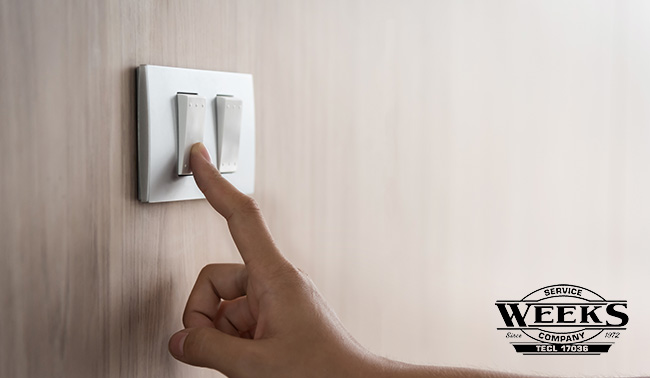With the Houston heat and humidity increasing rapidly, the last thing you want to deal with is an air conditioner that is causing problems. We understand you would much rather be thinking about relaxing and making the most of what is left of summer.
But life happens and your AC might be showing signs of malfunctioning, like leaking water. This problem can be difficult to diagnose, especially if you’re new to HVAC maintenance. Luckily, the pros at Weeks Service Company know a thing or two about your AC system and can answer the age-old question: Why is my air conditioner leaking water?
1. Damaged Drain Pan
The drain pan is usually located underneath the indoor air handling unit. The indoor handling unit includes the evaporator coil, which is an important component of your AC system. During the process of air conditioning, warm indoor air blows over the evaporator coil that includes a cooling agent called refrigerant. The refrigerant in the coil absorbs the heat from the warm air which causes condensation or moisture to collect on the coil and drip into the drain pan.
This is our long-winded way of saying that the drain pan is important. It collects excess moisture but if the pan is damaged, old or cracked, condensate might be leaking through. If your drain pan has minor cracks, you can use epoxy glue to repair them. However, it’s better to simply replace the pan!
2. Dirty Air Filter
We cannot stress how important it is to consistently replace or clean your AC’s air filter. A clean air filter improves air flow as well as your indoor air quality. A clogged, dirty filter can reduce the efficiency of your AC and cause other problems such as a frozen evaporator coil.
When air is absorbed and blown past a dirty filter, it might carry the dirt and debris with it onto the coil. Over time, the dirt collecting on the evaporator coil can hinder the coil’s ability to absorb heat, causing it to freeze. The ice on the coil can melt and the moisture can leak excessively. To avoid this, be sure to replace your air filter 1-3 months depending on the climate you live in!
3. Clogged Condensate Line
If there isn’t an issue with your air filter or drain pan, you might want to check the condensate line. The condensate line is an important part of your AC system. When your AC absorbs warm air from your home, it also absorbs humidity. The excess humidity removed from your home eventually condenses and is drained out through the condensate line.
If your AC is leaking water, there is a chance that your condensate line (which is located near your outdoor condenser) is clogged by debris, algae or fungi. When the condensate line is clogged, excess moisture can’t move away from your HVAC system. Instead, it gets backed up into your home. You can try to remove the clog yourself by using a wet-dry vacuum ¼ inch smaller than the pipe opening.
Need A Professional? Contact Weeks Service Company!
No matter what the cause, a leaking and malfunctioning air conditioner isn’t fun, especially in this hot weather. If you think your AC is giving you any problems, just give Weeks Service Company a shout! Our team of knowledgeable technicians will be able to solve any problems your home has, so you can be a relaxed homeowner this summer. Call us today at 346-595-7575 or schedule a service online!

